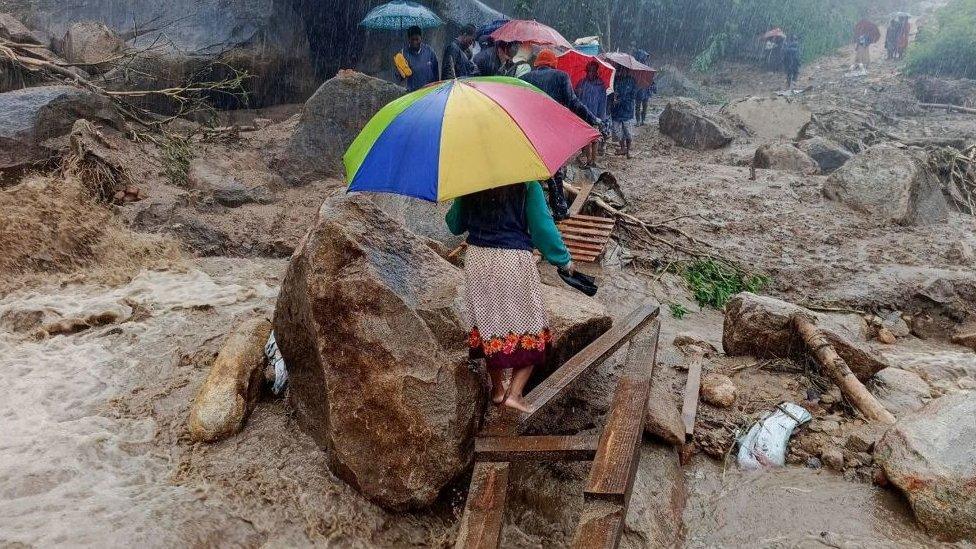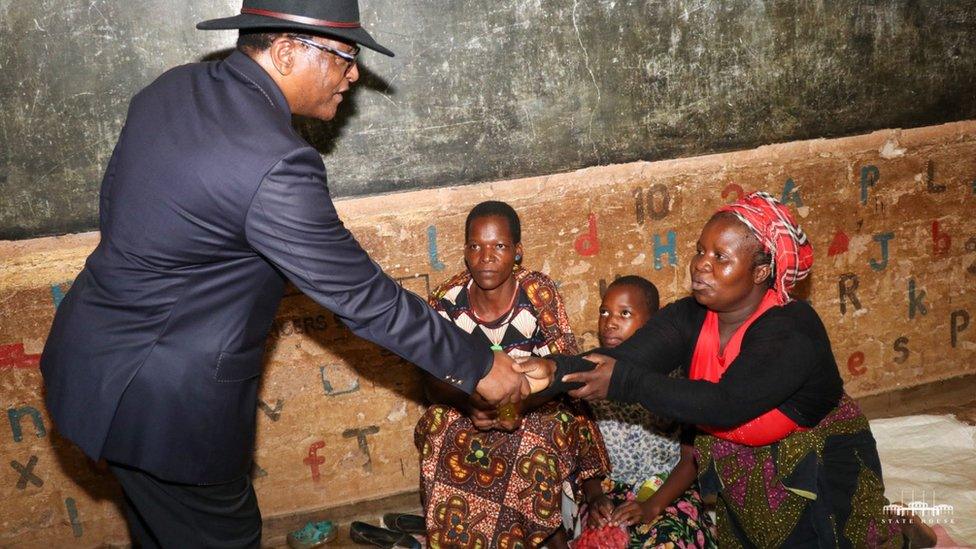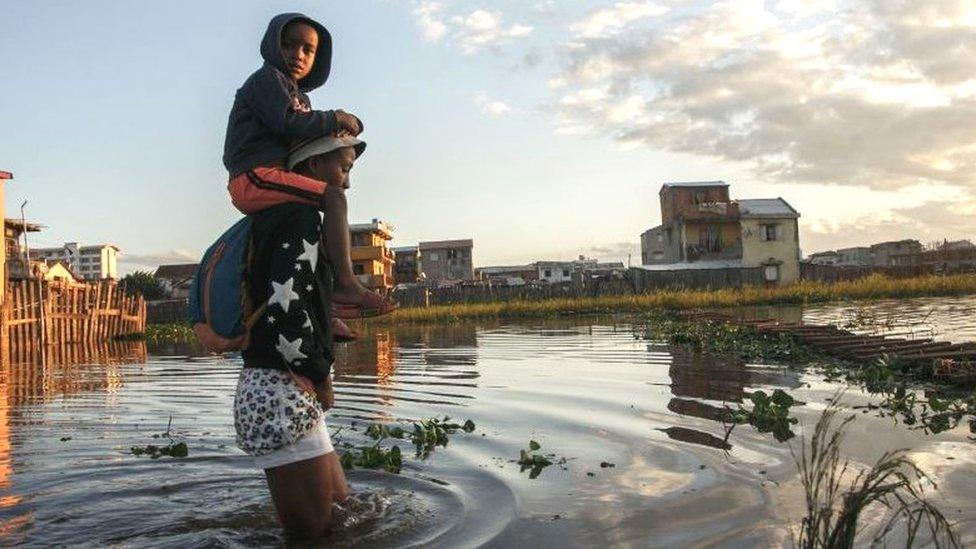Tropical Storm Freddy: Malawi hit by national tragedy - President Chakwera
- Published

Poorer areas in Malawi's main city Blantyre have been hardest-hit by the storm
The devastation caused by a tropical storm that ripped through Malawi, killing 225 people is a "national tragedy", the president has said.
Lazarus Chakwera promised to intensify search and rescue operations, as he attended the funeral of some victims.
Tropical Storm Freddy led to people being swept away by raging waters, or being buried under landslides.
The government has set up 30 emergency camps for at least 20,000 people who have had to leave their homes.
Blantyre, the hilly commercial capital of Malawi, has been worst-affected, with residents dying in landslides and homes crumbling into flood waters.
"Even our health workers need help," Health Minister Khumbize Kandodo Chiponda told the BBC's Focus on Africa programme.
Described the situation as "very fragile", she said that more than five million people had been affected by the storm.
"We have a history of getting cyclones. Unfortunately for Freddy, it was totally different, totally unexpected," she said.
"We are still recovering dead bodies. One child was recovered, fortunately still alive," Ms Chiponda added.
The government's disaster management agency said that 41 people were still missing, and more than 700 had been injured as the storm tore through Blantyre, and other parts of southern Malawi.
"My best friend, her brother, sister and mother went with the mudslide and their bodies have not been found. It's devastating. You can't even mourn," 19-year-old Blantyre resident Fadila Njolomole was quoted by AFP news agency as saying.
President Chakwera, wearing rubber boots and a raincoat, attended the funeral service of 21 victims at a primary school in the city.
"I appeal for more assistance from international partners and donors. This is a national tragedy that has affected every one of us," he said.
He declared 14 days of national mourning.

President Chakwera has visited some of the victims of the storm in Blantyre
The collapse of roads and bridges has hampered rescue operations, while helicopters have had difficulty flying because of the heavy rains and strong winds, although these have now eased.
The defence minister earlier said that a military helicopter would be despatched to rescue two soldiers who spent Tuesday night on a tree-top to avoid being swept away by the powerful currents of a river below them.
The soldiers were on a mission to rescue flood survivors when their boat capsized, forcing them to swim until they reached a tree.
Two other soldiers and a civilian managed to swim to safety, but the other two were reported missing, raising fears that they had drowned.
In another village in the Mulanje area, a man sent a WhatsApp message on Tuesday, saying heavy rains and winds were surging towards them from two mountainous areas.
"We have no hope, nowhere to go," he said, adding that women, children and the elderly were among those who needed to be evacuated.
It is unclear whether a rescue team has reached them.
Freddy has dumped the equivalent of six months of rainfall in six days on Malawi and neighbouring Mozambique.
About 20 deaths have been reported in Mozambique.
UN official Myrta Kaulard said the devastation in Mozambique was not as bad as feared because its government had invested in flood defence measures after being hit by tropical storms for the past three years.
"This is a huge demonstration of how much huge investments are required because of the intensity of climate change on a country like Mozambique," she told the BBC's Newsday programme.
Freddy is one of only four storms in history to traverse the entire Indian Ocean from north-western Australia to mainland Africa. Freddy could also be the longest-lasting tropical cyclone on record, according to the World Meteorological Organization.
On Sunday the storm struck Mozambique as a cyclone - for the second time in a less than a month - after battering the island nation of Madagascar in the Indian Ocean, causing severe destruction.
Experts say climate change is making tropical storms around the world wetter, windier and more intense.
The storm has also crippled power supplies in Malawi, with most parts of the country experiencing prolonged blackouts.
The national electricity company said it was unable to get its hydro-power plant working as it had been filled with debris.


Related topics
- Published29 January 2022
